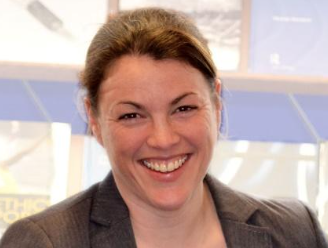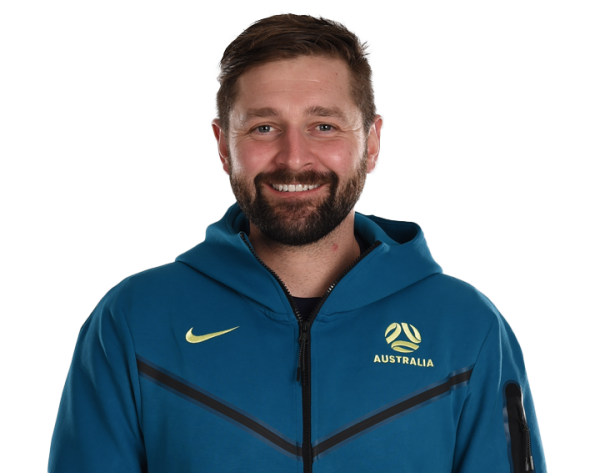Integrity Advisory Group (IAG)
Formed in May 2021, the purpose of the BASES Integrity Advisory Group (IAG) is to provide expert advice and opinion on behalf of the sector, on actions, policy development (e.g., Safeguarding, Whistleblowing, clean sport) and activity that will protect the integrity of sport and the profession of sport and exercise science in the United Kingdom. The BASES IAG comprises of Prof Sue Backhouse FBASES; Dr Neil Chester, Dr Emma Kavanagh (Chair), Dr Andy Miles FBASES, James Platt, Dr Daniel Rhind, Dr Emily Ryall and Jack Sharkey, supported by the BASES CEO.
BASES Integrity Advisory Group – Meet the Members:
Dr Emma Kavanagh FBASES (Chair)

Why did you choose to get involved in the Integrity Advisory Group?
I am a researcher in athlete welfare and I am passionate about fostering climates that enable people to thrive. I have been actively involved in BASES through driving forward safeguarding in the sport and exercise sciences and to act as a member of an integrity advisory group was a way to champion the topic across the sport and exercise community.
What does integrity mean to you?
I think integrity at times can be difficult to define. Certainly even looking at the specialisms across the members of the IAG the term can have a broad meaning. Where I focus more is on the personal aspect of acting with integrity. Working in an ethical manner and fostering positive relationships. Acting in a way that projects honesty, trustworthiness, and compassion. When we think about it in this manner we realise that we all have responsibility and opportunity to act with integrity.
How does integrity impact your practice on a day-to-day basis and why is it important?
Acting with integrity is held closely to me as one of my values. This underscores much of what I do in my professional and personal life. I am conscious of this and certainly use this as a point of reflection when possible. It is important as a foundation of the relationships I build and to help guide people’s trust in me across my life roles as a person, practitioner or academic.
Professor Sue Backhouse FBASES

Sue is internationally recognised for her research on doping in sport and serves on the World Anti-Doping Agency (WADA) Social Science Research Expert Advisory Group. She co-founded the Clean Sport Alliance and convened the BASES Clean Sport Interest Group. Sue leads the protecting sporting integrity and welfare team at Leeds Beckett University, conducting research that addresses the complexity of threats to the integrity of sport (e.g., doping) by investigating the issues from multiple perspectives, using an interdisciplinary lens. Examples of recently funded projects include the Erasmus+ funded collaborative projects (RESPECT and RESPECT-P) and WADA’s commissioned project Blowing the whistle on doping in sport through evidence-informed policy making. Sue is Professor and Director of Research in the Carnegie School of Sport at Leeds Beckett University. She is a HCPC Registered Practitioner Psychologist.
Why did you choose to get involved in the Integrity Advisory Group?
For nearly 20 years I have been researching and consulting on one of the most recognised threats to the integrity of sport – doping. In seeking to understand doping behaviours, it is clear that we need to do more to support and enable Sport and Exercise Scientists to play an active role in protecting the integrity of sport, and the welfare of athletes and fellow support personnel. Therefore, I wanted to get involved in this group so that I could contribute to the conversations, learn from everyone in the group, and help to make a positive difference within the context of Sport and Exercise Science.
What does integrity mean to you?
I’m still making sense of what the concept of integrity means to me and others. But the way I think and talk about it right now, is that integrity is about being honest and respectful at all times, no matter who we are interacting with or who’s watching. A person who acts with integrity is open when communicating with others, takes responsibility for their actions and owns up to their shortcomings.
How does integrity impact your practice on a day-to-day basis and why is it important?
The concept of integrity influences everything I do. It informs my role a Professor, as I lead a team of academics researching this very concept with global sports bodies. It shapes my role as Director of Research in the Carnegie School of Sport through my commitment to upholding the integrity of our research. Further, it impacts on my day-to-day living as a human being because to act without integrity would be at odds with my values and how I strive to live my life.
Neil Chester, PhD
As a senior lecturer in sport and exercise science at Liverpool John Moores University, much of my teaching is centred on sports nutrition. I am a passionate advocate of anti-doping, and it is a major focus of my teaching, research and consultancy work. I am co-editor of the textbook, ‘Drugs in Sport’, published by Routledge and now in its eighth edition. I am also a founding member of the BASES Clean Sport Special Interest Group. In addition, I have a particular interest in ethics and professional practice. I am currently chair of the school’s research ethics committee and also a member of the institution’s research ethics committee.
What does integrity mean to you?
Integrity in sport means maintaining and enhancing the positive influence that sport and exercise has on personal development, health, and wellbeing. Integrity is wide ranging in sport and is under constant threat from all directions as a consequence wealth, power differentials and egos. Both motivation and a proactive approach to counter these negative influences are essential in preserving the moral and ethical values of sport.
Why did you choose to get involved in the Integrity Advisory Group?
Media stories continually highlight the issues that compromise the integrity of sport, including problems concerning safeguarding, corruption and doping etc.
Maintaining the integrity of sport is critical and so is the role that BASES plays in promoting this amongst the sport and exercise science community and ensuring effective governance. Those that work in a profession that support sport and exercise and educate the future sport and exercise scientists have a significant role to play in promoting/enhancing the integrity of sport. For this reason, I was particularly keen to be involved in an initiative that is central to how we operate both as a professional organisation and as individuals in the various roles that are represented amongst the membership.
How does integrity impact your practice on a day-to-day basis and why is it important?
As an academic in higher education, I am cognisant of the importance of integrity and the part it plays both in the way I work as an educator and researcher. Integrity has a central role in the development of students as practitioners and researchers in sport and exercise science. I try to highlight the importance of the virtues aligned with integrity in terms of their future roles as responsible researchers and the varied roles associated with sport and exercise science that requires them to be good role models and influence behaviour and practice in the field.
Dr. Philip Clarke CPsychol

What does integrity mean to you?
Sport is very much a result-based industry, but that doesn’t mean it has to be win at all costs. Integrity to me means being true to that mantra and abiding by the strong moral principles of clean and healthy sporting environments for all individuals involved.
Why did you choose to get involved in the Integrity Advisory Group?
I am very passionate in supporting the person behind the performers. To do so effectively, it's important to be engaged with principles associated with the gold standards of the industry to create healthy, safe and high performing environments. Further, I feel it's important that BASES ensure the safety and develop the knowledge of the general athlete, support staff and population to empower them to make informed decisions about who they engage with as qualified practitioners.
How does integrity impact your practice on a day-to-day basis and why is it important?
As mentioned earlier, sport is a results-based industry, so integrity plays a huge part when it comes to supporting individuals, coaches etc in striving towards their personal and sporting goals. This can be done through supporting coaches in creating effective environments, or working within an MDT in making ethical, moral decisions when it comes to supporting individuals or teams. Integrity is the foundation for effective practise in my eyes.
Dr Andy Miles FBASES

Having been involved in sports science, sports coaching and people development for over 30 years I have always considered it a satisfying occupation, vocation and pastime offering many rewards and benefits. As such I feel that as many people as possible should get the opportunity to access these rewards and benefits and ensuring that sport and exercise is safe, fair and open to all is a big driver for me.
What does integrity mean to you?
To me integrity is ‘doing the right thing’ and ensuring that everyone can enjoy their sport, exercise or physical activity in a way they choose to do so and in a safe and fear-free environment. I see integrity as protecting fairness and safety in sport, both in terms of the way that we play our sport and exercise – adhering to rules, clean sport and fair competition - and also in the way in which we can access it – where, when and how we want to access it and without any barriers, fears or threats.
Why did you choose to get involved in the Integrity Advisory Group?
I have been involved in Integrity in its various guises (child protection, safeguarding, welfare) for many years and whilst many inroads have been made into addressing the issues, new challenges continue to emerge that threaten integrity in sport and exercise and I remain frustrated that it is still an issue on the agenda. A continued involvement gives me satisfaction that I am trying to be part of the solution for future generations.
How does integrity impact your practice on a day-to-day basis and why is it important?
I have always strived to ‘do things right’ professionally and as such everything I do in the working day is driven by the values of fairness, safety and openness and I try to work with, and talk to, people in the way I would want them to work with and talk to me. I am very driven by quality assurance and quality outputs and sometimes get frustrated at colleagues who seek a quick solution without giving full regard to the quality and integrity of their work – ChatGPT gives me nightmares from an educational perspective!
Dr James Newman CPsychol

Why did you choose to get involved in the Integrity Advisory Group?
I chose to get involved in the Integrity Advisory Group as I strongly identify with the values, beliefs, and actions of the group around sporting integrity. I also feel it is vital to contribute to the debate around integrity, given revelations from within the culture of sport and the willingness in some cases to embrace change. For me personally, being involved with the group is a really important opportunity to communicate my own research findings in a way which is hopefully meaningful and useful to others, as well as to effect change in how integrity is viewed and practised within the sporting culture.
What does integrity mean to you?
Integrity means thinking and acting in a way that is morally and ethically appropriate. Often this means adhering to certain morals and norms but other times it can involve challenging rules both formally and informally in relation to sport and wider society. An example of this can be seen in my own research on whistleblowing in professional football (Newman et al., 2022), where some of the informal ‘rules’ of the sporting environment may act as a barrier to individuals speaking out about wrongdoing. Behaving with integrity means challenging these rules to advance welfare and wellbeing in sport.
How does integrity impact your practice on a day-to-day basis and why is it important?
Integrity impacts my day-to-day practice in various ways. For example, in terms of teaching, it is important to foster a sense of critical thinking in the next generation of sport and exercise science so that they adhere to the highest moral and ethical standards, whilst also challenging and raising the bar of these standards. In terms of my research, integrity is at the heart of everything I do in terms of exploring issues around welfare in elite sport, as well as using my findings to guide the promotion of an appropriate climate in this context. Finally in terms of my applied work, practising with integrity is a vital part of my core philosophy. This means critically assessing the climates and cultures I am happy to work in and promote, whilst also carefully considering when working in these environments may not be congruent with my values and beliefs. In summary, promoting matters of integrity is vital in safeguarding individual and group welfare, which in my view ultimately facilitates optimal performance.
James Platt, Assoc CIPD

James is a BASES student member currently completing an MRes exploring the lived experiences of former elite football academy players, focussing on the areas of body-self relationships and identity, particularly how these are affected by transitions and the implementation of ‘bio-banding’. He has over 15 years management experience in the leisure industry within teams across the UK, and has gained an in-depth knowledge of safeguarding practice through training, recruiting, and developing staff particularly in the young adult demographic. He holds the Chartered Institute of Professional Development Level 3 qualification and in 2017 returned to full-time education as a mature student at Bournemouth University, graduating in 2020 with a BSc (Hons) in Sports Psychology and Coaching Sciences.
Why did you choose to get involved in the Integrity Advisory Group?
I saw the opportunity to become a member of the IAG as a way to become involved in creating positive change within the BASES community. As a student member I felt that it was important to have that voice heard within such a group, but also to use the platform that the IAG offers to listen and learn from the wealth of knowledge and experience that we have in the group. Although passionate about the sporting world, I also wanted to share my perspectives with an extensive background in safeguarding from a different sector, that will hopefully benefit both the group and the wider membership.
What does integrity mean to you?
Although integrity can be defined in many ways, I view integrity as acting in such a way as to consider what is best not only for one individual but for all; behaving in the same manner with all that you meet and work with; acting responsibly and fairly; and doing what is right even if the decision to do so is not an easy one. This can be sustained through an agreed set of values and beliefs, either within yourself on an individual level or through an organisational culture.
How does integrity impact your practice on a day-to-day basis and why is it important?
During my career in management roles the idea of integrity was always an important one for me and seemed to tie in closely with authenticity. Forming close working relationships with others, especially in leadership positions, requires a certain level of trust that I don’t think can really exist without integrity. This is important as a characteristic of integrity can allow you to build teams where individuals feel free and able to be themselves, make mistakes, take responsibility, be vulnerable, and ultimately feel valued. As I developed myself as a researcher I realised that these attributes were equally as vital, especially when recruiting participants from high performance environments, building rapport, and discussing sensitive topics.
Dr Daniel Rhind

Daniel is a Chartered Psychologist and a Reader in Psychology at Loughborough University. Daniel’s research focuses on the realisation of human rights in, around and through sport. He has conducted projects funded by organisations in the UK (e.g., Economic and Social Research Council, National Society for the Prevention of Cruelty to Children, English Football Association) as well as internationally (e.g., International Olympic Committee, FIFA, Oak Foundation, World Players Association). His research was fundamental in the development of the International Safeguards for Children in Sport which are now endorsed by over 400 organisations who work with over 50 million children worldwide. His research also informed the on-going changes to Position of Trust Legislation.
Why did you choose to get involved in the Integrity Advisory Group?
I am passionate about sport and about conducting research which helps to safeguard everyone in, around and through sport. I believe that the Integrity Advisory Group can play a key role in shaping integrity-related research going forward as well as maximise the impact of research evidence on the practice of sport and exercise sciences.
Dr Emily Ryall

Dr Emily Ryall is a Reader in Applied Philosophy at the University of Gloucestershire where she is also Chair of the University of Gloucestershire Research Ethics Committee and Research Lead for the University of Gloucestershire priority area of ‘Health, Life Sciences, Sport and Wellbeing’. She delivers and co-designed the BASES Professional Ethics workshop for Supervised Practice and is currently on the UK Athletics committee for Standards, Ethics and Rules. She has previously worked with the world-leading sports dispute resolution service, Sports Resolutions, to develop a compendium of case studies in sports law and ethics and has authored books and academic articles on issues related to sports ethics and governance.
Why did you choose to get involved in the Integrity Advisory Group?
I was invited to be part of the group by a colleague but have always been interested and involved in the areas of ethics and integrity from a professional and academic perspective.
What does integrity mean to you?
Integrity is ultimately about acting in ways that are both consistent to your own values and principles but also fit with the values and principles of the community around you. Sometimes these might conflict but even in these instances, there are general norms (such as principles of honesty and respect) that can help navigate tricky situations.
How does integrity impact your practice on a day-to-day basis and why is it important?
Integrity is necessary to enable a life that flourishes – it provides a strong and stable foundation on which to build a strong a stable life both privately and publicly. It provides the confidence that others need to share your vision and work alongside you. Without it, you will lack trust and relationships will easily fracture.
Jack Sharkey CSci

Jack Sharkey CSci is an applied Sport Scientist with 10 years’ experience working in professional football. His current role is Head of Sport Science for the Australian Women’s National Football Teams.
Jack is a member of the BASES Integrity Advisory Group (IAG), bringing along his expertise as an athlete support personnel in professional sport, and seeing first-hand how effective safeguarding policy and practitioner integrity can bring about positive change in athlete support. He is also a member of the UKSCA Equality, Diversity, and Inclusion (EDI) committee, a group looking to instil positive change within the organisation and the wider Strength and Conditioning community.
Why did you choose to get involved in the Integrity Advisory Group?
For the past decade I have been working as an applied Sport Scientist in professional football. This experience in the industry has helped me understand how important it is that as Sport Science practitioners, it is our duty to ensure there is a culture of integrity and safeguarding embedded in our practices and procedures. I was keen to be involved within the advisory group where I can bring my first-hand experiences of the last ten years in football on how effective safeguarding policy and practitioner integrity can bring about positive change in athlete and staff support.
What does integrity mean to you?
For me integrity in Sport is fair competition for all athletes and staff both on and off the field. Integrity is underpinned by our societal values, beliefs, and principles, and this is no different when we think of integrity in Sport Science. Integrity is multi-faceted, it may involve measures to tackle anti-doping and anti-corruption; the safeguarding of children and adults in the clubs we work; the protection of an athlete’s personal data we collect; or allowing all staff to have a voice with stringent complaints and disciplinary procedures.
How does integrity impact your practice on a day-to-day basis and why is it important?
Integrity is embedded in the ethos of all the procedures and practices I conduct. Aside from being the essence of what makes a decent human being, it is my experience that a high-performance working environment that lacks integrity is unsustainable and becomes unsuccessful. For me to become an effective Sport Science practitioner, I have depended on the trust and honesty I have with the athletes and staff I work with, and this has been reliant on my integrity for the sport and industry.
